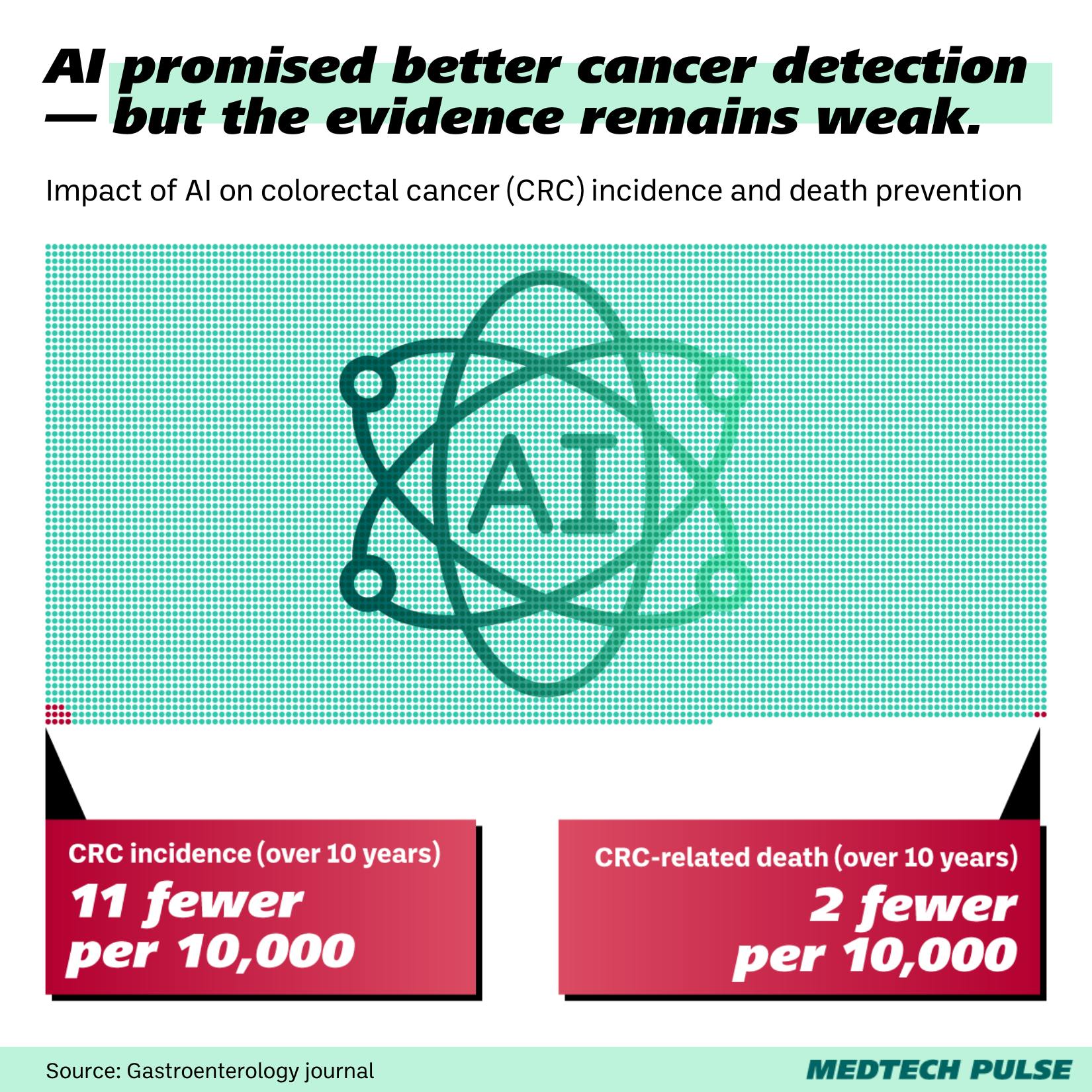A non-recommendation for AI colonoscopies
One of the areas where clinical AI’s efficacy has been most emphasized is diagnostics. However, proving that efficacy in practice is turning out to be a challenge.
The story: A panel of leading American gastroenterology experts published new guidance on the use of AI in colorectal cancer screening.
- After initially publishing draft guidance recommending the technology, the American Gastroenterological Association (AGA) walked it back and chose not to recommend the use of the technology.
- The main reasoning for this decision cited the lack of concrete evidence that the technology’s use in screenings led to significant enough reductions in mortality to justify the extra testing and costs associated.
So, is AI effective in colposcopy or not?: For now, there’s no clear-cut answer. What we do know is that there are trade-offs.
- Researchers do agree that using AI does increase the detection rate of polyps in colonoscopies.
- Polyps in themselves are not a confirmation of cancer, but some do indicate the need for further testing and monitoring. Plus, researchers note that the extra polyps that AI-aided colonoscopy generally detects are the type of small polyps unlikely to progress to malignancy.
- The extra testing and expenditures that tick up with the use of AI are where the trade-off comes in.
- In their low-certainty estimate, researchers have found that AI-aided screening only yields two fewer deaths per 10,000 people over 10 years.

That low certainty, limited benefit, and the high cost of extra population-wide testing has led to the non-recommendation.
More data is necessary: Of course, this decision doesn’t mean that the AGA wouldn’t recommend the use of the technology in the future, especially once we gather more data.
- Notably, there is a long lag time between the identification of polyps and seeing the potential benefit.
For now, we can hope that, with more time and more data on the downstream impacts on mortality, we’ll have a clearer picture of where the use of AI in diagnostics makes the most sense. It’s a great reminder that, when it comes to clinical medicine, weighing the benefits of an intervention is never as simple as asking whether it might help an individual patient or prevent a single death.